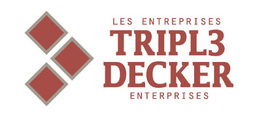|
There are an estimated 1500 to 2000 languages used in Africa, including 200 Afro-Asiatic languages (northern Africa including the horn, central Sahara and the top Nile), 140 Nilo-Saharian languages (central and eastern Africa), 1000 Niger-Saharian languages (central, south western and sub-saharan Africa) and 30 Khoisan languages (western southern-Africa). While the international languages of English, French, Portuguese, Arabic and Dutch also have their place in the African business world, communication among peoples in differing parts of Africa can be challenging.
Voice recognition has been around since the early nineteen fifties (~65 years), however major advances only started in the late seventies when commercial applications started to become available. The established voice recognition technologies mostly work on listening to what the user is saying and then putting that into text format (text to speech). Differing manners for which this can be done exist, however this is the prevailing way that voice recognition works. Recent technologies take this one step further and offer voice assistants which not only figure out what you are saying, but then they research massive databases of information to help get answers to questions that you might ask. You see this integrated into smartphones (Siri, Google) or in home speakers (Echo with Alexa). Voice recognition is advancing faster now than ever before and you now have a digital voice assistant in one out of every five American households and this is expected to hit over 50% of homes in the next 5 years. The main problem is the way that current technologies work and how this can be scaled globally. While American English is a considerable market, in the hundreds of millions of people, it represents less than 5% of the global population so it is not really solving the global communication problem. It is said that a major manufacturer took about two years to be able to launch their smart home product in the German language. This is because it takes thousands of hours of speech and hundreds of speakers to be able to have a database large enough to convert text to speech and then derive intent from it. This is for a massively used language like German which has a consumer market ripe for products like personal assistants, but what about languages like Hausa or Swahili where the user subset is not as large or as potentially lucrative? Traditional technologies in voice recognition will never be used to serve these languages because the work is too time consuming to ever be economically viable. This is where the benefits of artificial intelligence come into play. New technologies are emerging which are eliminating the need to convert voice to text and then refer to a massive database when dealing with understanding the intent of the user who speaks the language. If one can eliminate the need to refer to massive databases to examine every word to determine intent, it can allow for artificial intelligence to transform voice recognition. This can then allow integration of voice recognition into not only home assistants, but into other every day products which are not connected to the internet that are in use in any language, quite easily. Imagine the following scenario’s: “toilet, Flush” , “car, driver one settings” , “radio, scan up channel” , “blender, level 3 mix” Or even the ability to call your mobile phone operator and get top up airtime, find out where to change a SIM card, or pay your electricity bill, all in your tribal language. Services which are not currently available in all languages, could be suddenly available. Artificial intelligence has the power to use logic and compute massive amounts of data or develop strong algorithms to make this a reality and it is not as far away as we might think. While AI has the ability to affect much more than voice recognition, this one advance might end up having a major effect in helping all people be understood. Derek Kopke is a senior business development executive and consultant. He’s traveled to over 65 countries and closed sales in over 80 countries across the globe. With an undergrad in education and an MBA in International Business, his unique world view and experience with cultures globally give him valuable experience which he has used to the benefit of companies interested in growing overseas. Derek is based in Montreal, Canada along with his wife and two teenage children.
1 Comment
|
AuthorWrite something about yourself. No need to be fancy, just an overview. Archives
March 2019
Categories |
|
© 2022 Triple Decker Enterprises
Copyright 2002-2019. All rights reserved. No part of this Web site may be reproduced or transferred to another Web site without express permission; instead provide a link to this Web site. To do otherwise is to infringe on the rights of Triple Decker Enterprises. All efforts are made to ensure the accuracy of information provided herein; however Triple Decker Enterprises cannot be held responsible for any errors or omissions. |
